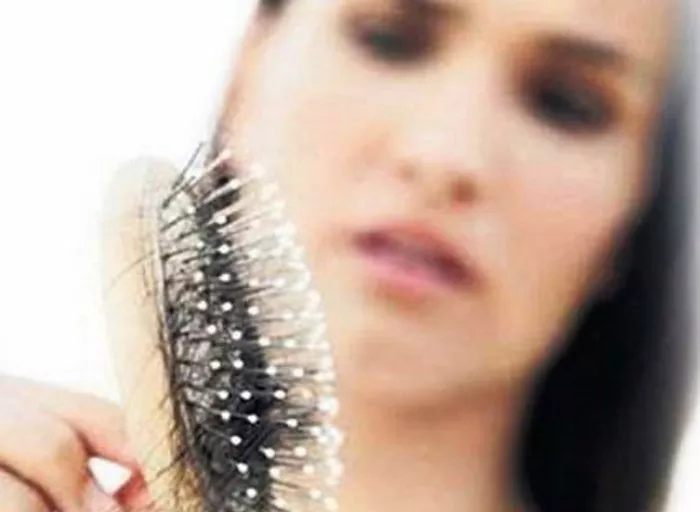In the realm of health and beauty, hair loss is a topic that can leave many individuals feeling perplexed and concerned. Whether you’re experiencing it yourself or have noticed a loved one going through this distressing issue, understanding the reasons behind hair loss is crucial. In this comprehensive guide, we will delve deep into the factors that contribute to hair loss, providing insights and recommendations for managing this common concern. Let’s explore the complex world of hair loss, its underlying causes, and effective solutions.
1. Genetic Predisposition: The Family Connection
One of the most significant contributors to hair loss is genetics. If your parents or grandparents experienced hair loss, you may be genetically predisposed to it as well. This hereditary condition, known as Androgenetic Alopecia, affects both men and women. It occurs when hair follicles become sensitive to the hormone dihydrotestosterone (DHT), causing them to shrink and produce thinner hair strands. This genetic predisposition can lead to receding hairlines, thinning crowns, and ultimately, baldness.
Genetic predisposition can be traced through family history, with patterns of hair loss often following a recognizable path.
Understanding your genetic risk can help you take proactive measures to prevent or manage hair loss.
2. Hormonal Imbalances: The Role of Hormones in Hair Loss
Hormones play a vital role in maintaining healthy hair growth. Fluctuations in hormonal levels can trigger hair loss in both men and women. For instance, the hormonal changes that occur during pregnancy, menopause, and certain medical conditions can lead to hair thinning and shedding.
Hormonal imbalances can disrupt the hair growth cycle, leading to excessive hair fall.
Consulting a healthcare professional can help identify and address hormonal issues contributing to hair loss.
a. Pregnancy-Related Hair Loss: A Temporary Phase
During pregnancy, many women experience a surge in hormonal levels, which can lead to thicker and healthier hair. However, after giving birth, these hormone levels drop dramatically, often causing postpartum hair loss. This temporary phase can be distressing, but it usually resolves on its own within a few months.
b. Menopause and Hair Loss: Understanding the Connection
Menopause is another significant hormonal milestone for women. The decline in estrogen levels during menopause can lead to thinning hair and decreased hair density. Hormone replacement therapy (HRT) and specialized hair care products can help mitigate these effects.
3. Nutritional Deficiencies: Fueling Hair Health from Within
Your diet plays a pivotal role in maintaining the health of your hair. Nutritional deficiencies can contribute to hair loss, making it essential to consume a well-balanced diet rich in essential nutrients.
Iron deficiency, in particular, is associated with hair loss, as it affects the oxygen supply to hair follicles.
Other nutrients like biotin, zinc, and vitamins A and D are also vital for hair health.
a. A Nutrient-Rich Diet: Feeding Your Follicles
Incorporate foods like leafy greens, lean proteins, nuts, and seeds into your diet to provide your hair with the essential nutrients it needs to thrive. Supplements can also be considered under the guidance of a healthcare provider.
b. Avoid Crash Diets: Sudden Weight Loss and Hair Loss
Extreme diets or rapid weight loss can shock the body and lead to hair loss. Maintaining a healthy weight through balanced nutrition is key to preventing this form of hair loss.
4. Stress: The Silent Saboteur of Hair Health
In today’s fast-paced world, stress has become a ubiquitous part of life. However, chronic stress can wreak havoc on your hair health. The body’s response to stress releases hormones that can disrupt the natural hair growth cycle.
Telogen effluvium, a condition triggered by severe stress, causes hair follicles to prematurely enter the resting phase, resulting in excessive shedding.
Practicing stress-reduction techniques such as yoga, meditation, and regular exercise can help mitigate the impact of stress on your hair.
a. The Mind-Body Connection: Stress and Hair Loss
Understanding the connection between stress and hair loss is essential. Prioritizing mental well-being and seeking support when needed can help maintain a healthy head of hair.
b. Stress-Related Hair Loss Solutions: Finding Balance
Managing stress through relaxation techniques and a supportive social network can go a long way in preserving your hair’s health and preventing hair loss.
5. Hairstyling Practices: Tread Carefully
Frequent and excessive hairstyling practices, such as tight hairstyles, heat treatments, and chemical processes, can cause damage to the hair shaft and follicles.
Tight hairstyles like braids, ponytails, and extensions can exert tension on hair follicles, leading to traction alopecia.
Limit the use of heat styling tools, and if used, always apply a heat protectant to minimize damage.
a. Traction Alopecia: Protecting Your Hairline
Traction alopecia is a form of hair loss caused by the persistent pulling of hair. Avoid tight hairstyles that stress your hairline and opt for protective styles that distribute tension evenly.
b. Heat Protectants: Shields for Your Strands
Applying a heat protectant before using hot tools can create a barrier that reduces the risk of heat-induced hair damage.
See Also: How to Stop Alopecia Itching: Strategies to Relieve Discomfort
In conclusion
Understanding the underlying causes of hair loss is the first step towards finding effective solutions. Whether it’s genetic predisposition, hormonal imbalances, nutritional deficiencies, stress, or hairstyling practices, taking proactive measures and seeking professional guidance can help you address this common concern and achieve healthier, more vibrant hair. Remember that everyone’s hair loss journey is unique, and a tailored approach is often the key to success in regaining and maintaining your crowning glory.


